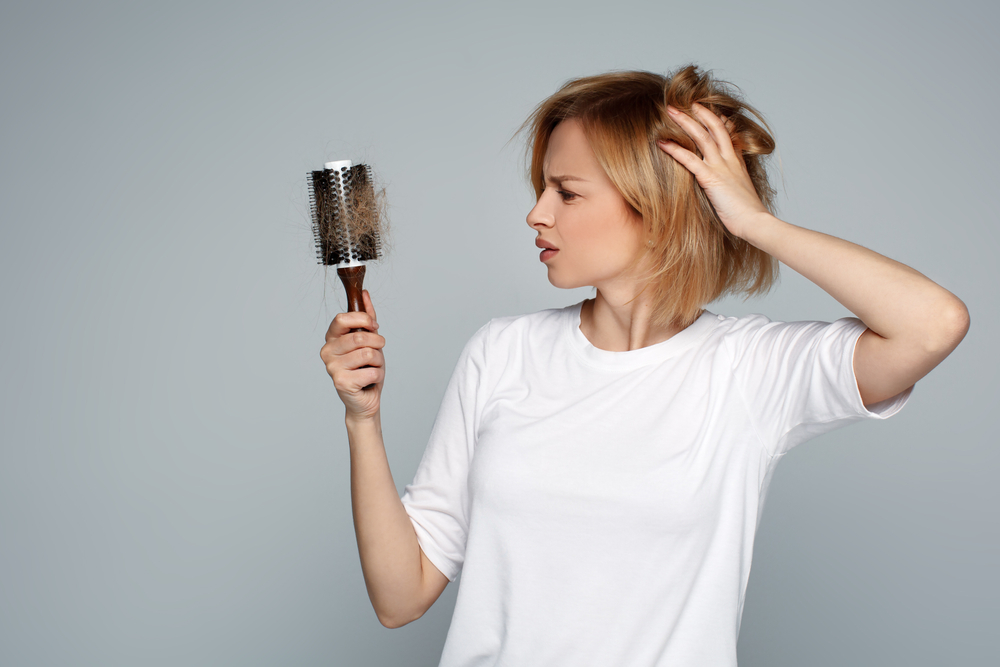Hair loss can be a frustrating experience, and sometimes, it might be linked to what you’re eating—or not eating. Nutrient deficiencies can play a significant role in the health of your hair. In this article, we’ll explore some key nutrients that can affect hair growth and how their absence can lead to hair loss.
Iron deficiency
Iron is important for producing haemoglobin, which helps carry oxygen in your blood. Without enough iron, your hair follicles can become starved of oxygen and nutrients, leading to hair loss. This is especially common in women, particularly those who are menstruating or pregnant. If you suspect you’re low on iron, consider incorporating iron-rich foods into your diet, such as spinach, lentils, and red meat. In some cases, supplements may be necessary, but it’s best to consult a healthcare professional first.
Zinc deficiency
Zinc plays a role in hair tissue growth and repair. It also helps keep the oil glands around your hair follicles functioning properly. A lack of zinc can lead to hair shedding and slow down the hair growth cycle. You can find zinc in foods like oysters, beef, pumpkin seeds, and chickpeas. If you’re experiencing unexplained hair loss, it might be worth checking your zinc levels, as supplementation could be beneficial.
Biotin deficiency
Biotin, also known as vitamin B7, is often called the “hair vitamin.” It helps strengthen hair and promotes growth by supporting the production of keratin, a key protein in hair structure. While biotin deficiencies are rare, they can lead to thinning hair and brittle strands. To boost your biotin intake, consider eating eggs, nuts, and whole grains. If you’re concerned about hair loss, a biotin supplement might be a good option, but again, it’s wise to discuss this with a healthcare provider.
Frequently asked questions about hair loss
What are the symptoms of nutrient deficiency related to hair loss?
Symptoms include thinning hair, brittle strands, and excessive shedding. Look for changes in hair texture or growth.
How can I check if I have a nutrient deficiency?
Consult a healthcare professional for blood tests to determine nutrient levels and identify any deficiencies.
Can nutrient deficiencies be reversed to restore hair growth?
Yes, addressing nutrient deficiencies through diet or supplements can promote hair regrowth and improve hair health.

